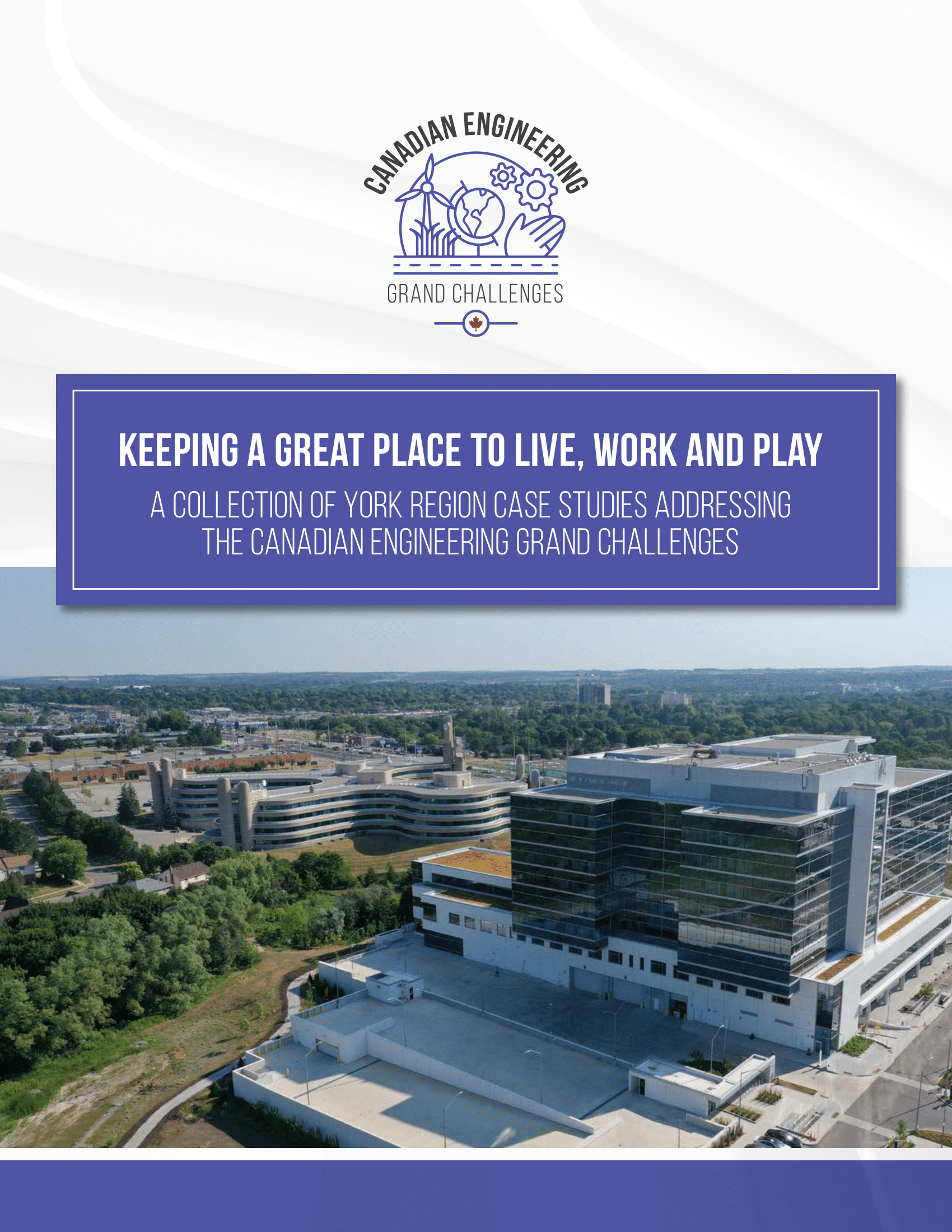The Department of Civil and Environmental Engineering is pleased to welcome Andrew Farr, P. Eng., as the 2024 Douglas Wright Engineer-in-Residence.

Andrew Farr has been Halton Region’s Commissioner of the Public Works Department since November 2020. Prior to joining Halton Region, Andrew served as the interim Commissioner of Public Works for Peel Region in addition to holding various leadership positions in Peel’s Public Works department for over 18 years, including the General Manager, Water and Wastewater.
Andrew holds a Bachelor of Applied Science in Civil Engineering and Water Resources from the University of Waterloo and a Master’s Certificate in Public Management from York University. He is a member (P.Eng.) of the Professional Engineers of Ontario. He is presently the Chair of the Regional Public Works Commissioners of Ontario Committee (RPWCO), a role he assumed in January 2023 and will continue through to the end of 2024.
Andrew is a strong advocate of the public works industry and is a member of, and has participated on several associations including on the Board of Directors with the Canadian Water Network and is a mentor for new engineers through the Water Environment Association of Ontario. He is also a strong proponent of giving back to the communities in which he lives and works and recently was the co-chair Halton Region’s United Way Campaign.
The Douglas Wright Engineer-in-Residence program
The Douglas Wright Engineer-in-Residence (EIR) program is a new initiative in the Department of Civil and Environmental Engineering, which falls within the mandate of the Turkstra Chair in Urban Engineering, who would lead the selection and oversight of the Douglas Wright Engineer-in-Residence. Accredited undergraduate programs often engage with senior professionals to serve in multiple capacities as a resource for faculty and students. Under the Turkstra Chair’s direction, the Department would invite a practicing engineer who serves in a leadership role in industry to fill this position. Engaging EIRs is one way that the Department of Civil and Environmental Engineering fosters a diversity of perspectives in the education of future and current graduate engineers.
The Douglas Wright Engineer-in-Residence program is very fittingly named after the first Dean of Engineering at the University of Waterloo, Douglas Wright. Students and faculty of the University of Waterloo know that the DWE building is the Douglas Wright Engineering (DWE) building, which was the first engineering building on campus.
The EIR program more broadly is an avenue for mutually beneficial engagement between the academic community and the engineering practice community. The Turkstra Chair’s activities are grounded in educational collaboration with the practice community, where the EIR is selected to foster and develop industry-academic engagements as they promote leadership among engineering students for the betterment of our cities now and into the future.
Marcia Friesen, Nadine Ibrahim, Grant McSorley, Steve Mattucci, 2019. “Engineers-in-Residence Programs as a Framework for Industry Engagement in Undergraduate Engineering Education: Challenges and Opportunities.” Proceedings 2019 Canadian Engineering Education Association (CEEA-ACEG19) Conference, Ottawa, June 8-12. Download (PDF)
"…the EIR programs are introduced as an academic-industry engagement, and take on various organizational frameworks from their inclusion as advisory or outreach to an immersion into the core-teaching mandate at universities. With EIR involvement on- or off-campus, lasting one term or one year or more, their effectiveness stems from their reason for being,…"
Roles and responsibilities
The Douglas Wright Engineer-in-Residence aligns with the vision for urban engineering by offering expertise in a variety of contexts including leadership, mentorship, technical guidance, in addition to teaching support, and other roles that leverage specific skills of the EIR.
The main objective of the EIR program is to empower civil engineers to take on authority and leadership in significant areas of urban engineering, and to motivate students to use emerging technologies and engineering methodologies to tackle the world’s toughest urban challenges. They can also support student hiring to mutual benefits for students and employers. The EIR will be selected and invited for a minimum of one academic term, and will have oversight by the Turkstra Chair in Urban Engineering. In this role, the EIR will engage with students and faculty in various capacities depending on the activities during the academic term of engagement.
Interested in nominating yourself or a senior professional you know? Please email Nadine Ibrahim
Past Engineers-in-Residence
The Turkstra Chair in Urban Engineering and the Department of Civil and Environmental Engineering introduced the Engineer-in-Residence initiative in January 2020. Mike Murray, M. Eng., P, Eng. held the inaugural Douglas Wright Engineer-in-Residence role in 2020.






